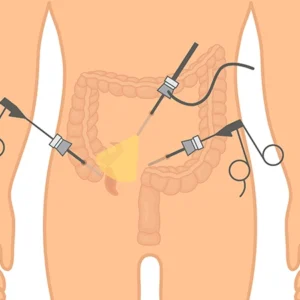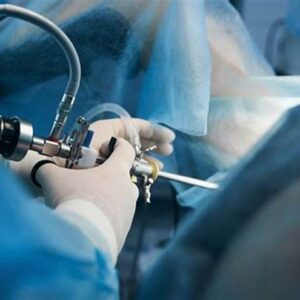Description
Familiarity with Treatment
Thyroid lobectomy is a surgical procedure that involves the removal of one lobe of the thyroid gland, leaving the other lobe intact. The thyroid gland is a butterfly-shaped gland located in the front of the neck that produces hormones regulating metabolism.
Procedure
During a thyroid lobectomy, the surgeon makes an incision in the front of the neck and removes one lobe of the thyroid gland, along with any associated nodules or tumors. The remaining lobe is left in place. The procedure is typically performed under general anesthesia.
Who is it Suitable For?
Thyroid lobectomy is suitable for individuals with certain thyroid conditions, such as small thyroid nodules, suspicious nodules, or well-differentiated thyroid cancer limited to one lobe. The decision to perform a thyroid lobectomy is based on the specific condition, the size and characteristics of the nodules, and the recommendations of the healthcare provider.
Who is it Not Suitable For?
Thyroid lobectomy may not be suitable for individuals with certain medical conditions or those who have thyroid cancer that has spread beyond one lobe. The healthcare provider will evaluate the individual’s overall health and determine the most appropriate treatment option.
Advantages
- Preservation of Thyroid Function: Thyroid lobectomy aims to preserve thyroid function by leaving one lobe intact. This can help maintain normal thyroid hormone production and reduce the need for lifelong hormone replacement therapy.
- Smaller Incision: Compared to total thyroidectomy, thyroid lobectomy involves a smaller incision and may result in less postoperative pain and a quicker recovery time.
Complications
- Hypothyroidism: After thyroid lobectomy, there is a risk of developing hypothyroidism, especially if the remaining lobe does not produce enough thyroid hormones. Regular monitoring of thyroid hormone levels and appropriate hormone replacement therapy may be necessary.
- Bleeding: As with any surgical procedure, there is a risk of bleeding during or after the surgery, which may require additional medical intervention.
- Infection: Infection at the surgical site is a potential complication, although it is rare.
- Damage to Adjacent Structures: There is a small risk of damage to nearby structures, such as the parathyroid glands or the recurrent laryngeal nerves, which can affect calcium regulation and vocal cord function, respectively.
Preoperative Care
Preoperative care for thyroid lobectomy involves a comprehensive evaluation by the healthcare provider, including imaging tests and fine-needle aspiration biopsy to assess the nodules’ characteristics. The individual may need to discontinue certain medications prior to surgery, as advised by the healthcare provider.
Postoperative Care
Postoperative care for thyroid lobectomy includes monitoring for any signs of complications, such as bleeding, infection, or changes in thyroid hormone levels. The individual may require thyroid hormone replacement therapy if hypothyroidism develops. Regular follow-up appointments with the healthcare provider are important to monitor thyroid hormone levels and overall health.
Thyroid lobectomy is a surgical procedure performed to treat certain thyroid conditions while aiming to preserve thyroid function.








Reviews
There are no reviews yet.